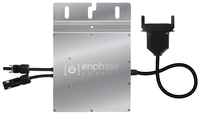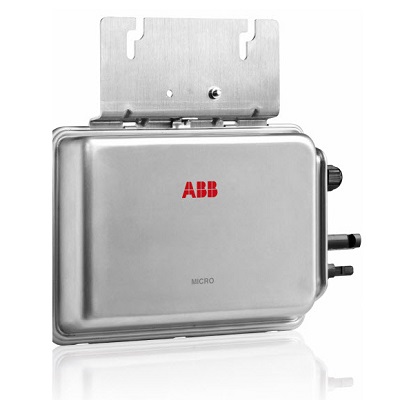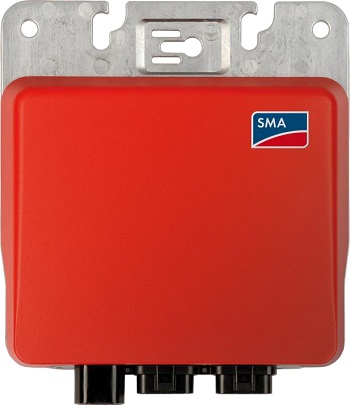 Loading... Please wait...
Loading... Please wait...- Home
- Solaris Blog
- What are the Pros and Cons of Micro-Inverters?
Products
- Solar Panels
- Solar Panel Kits
- Solar Generators
- Inverters
- Inverter Monitoring
- Inverter Accessories
- Balance of Systems
- Racking and Mounting
- Rails
- Flashings
- Splice Kits
- Stopper Sleeves
- Conduit Mounts
- Attachments
- Brace Assembly
- Base Mount
- Brackets
- Bolts
- Clamps
- Caps
- L-Feet
- Washers
- Skirt
- Lugs
- Tilt Legs
- Hooks
- Stand-Offs
- Ballast Bay
- Top of Pole Mount
- Side of Pole Mount
- Flush Mount Kits
- Ground Mount Kits
- Roof Mount Kits
- Hardware Packages
- Wire Management
- Batteries
- Battery Accessories
- Charge Controllers
- Tools and Supplies
- View All Products
What are the Pros and Cons of Micro-Inverters?
Posted by Brandi Casey on 17th Jun 2015
Solar installations require a lot of time, planning and decision making. One of the factors that needs to be considered when putting together any system is: "What type of inverter do I need or want?" There are the standard centralized inverters that are often seen for various size systems, and the newer technology of micro-inverters. In 1993 Enphase Energy was the first company to release micro-inverters to the market, since then a handful of companies (such as ABB and SMA) have made their own as well.
Micro-inverters can be very useful for homeowners who have obstacles on their roof such as shading, pipes, chimneys and more. Solar micro-inverters have greater output potential in situations where a panel may be shaded as micro-inverters will copes with differences between modules more harmoniously than a centralized inverter. Since each micro-inverter is attached to individual panels, installation may be easier, and the homeowner could install more solar panels than they originally thought was possible. Each micro-inverter manufacturer offers monitoring equipment which will allow the end user to monitor the efficiency of the each individual panel and their system as a whole. Another added perk of micro-inverters is that if one of the micro-inverters fails, the rest will continue to work. The installation of micro-inverters also allows for easier expansion of the solar system since you will not cap out in watts or volts as easily as you would with a centralized inverter. While micro-inverters will have a cap on how many can be in the string connected together, the number is much higher and easier to work with. When expanding your solar system it is important to revisit your installation guide, and/or check with a NABCEP certified installer.
ABB MICRO-0.25-I-OUTD-US-208/240
While the benefits of micro-inverters are clear, there are also cons that need to be taken into consideration. You must order micro-inverters for each solar panel in your solar system, this leads to higher cost than a single centralized inverter. There is also a possibility that heat could reduce the life of your micro-inverters. However, let it be noted that micro-inverter systems may last longer than centralized inverters. There is still research to be done regarding micro-inverter performance when under high temperature conditions over an extended period of time. Finally, due to the fact that this technology is still relatively new, their 25 year performance warranty has just begun to be tested.
In closing, the technology of micro-inverters is promising and offers a great solution for homeowners with rooftop obstacles, and for those who may add onto their systems in the future. However if you are working to install solar on a tight budget, micro-inverters may extend out of your price range. Choosing between micro-inverters and centralized inverters depends on your individual circumstances, and how you would like to install and maintain your system in the years to come.






